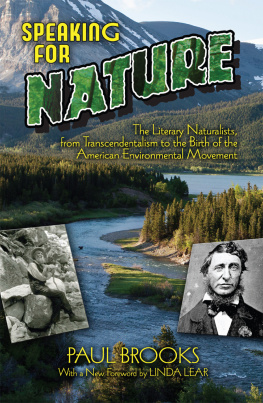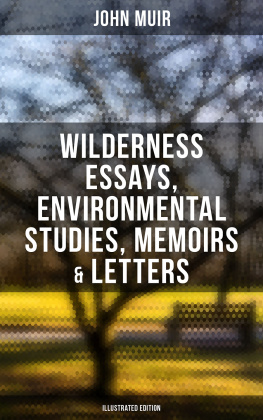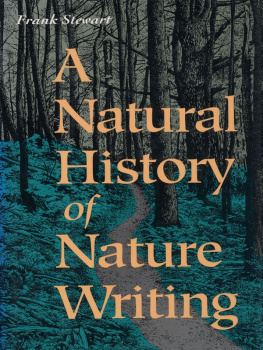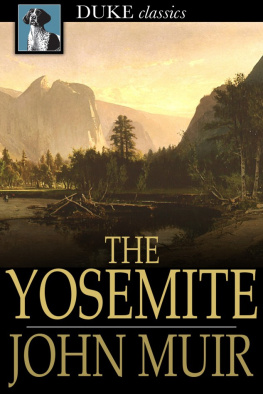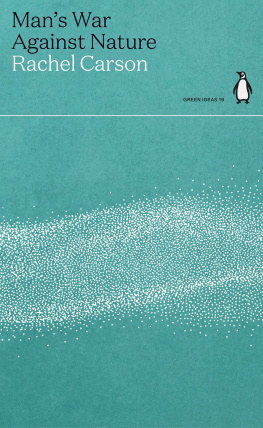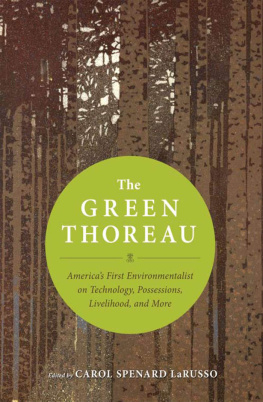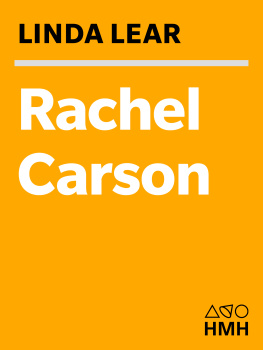Speaking for
NATURE
The Literary Naturalists, from Transcendentalism to the Birth of the American Environmental Movement
PAUL BROOKS
With Drawings by the Author
Foreword by
LINDA LEAR

Published in Association with the Walden Woods Project, Lincoln, Massachusetts, by
Dover Publications, Inc., Mineola, New York
A nonprofit organization, the Walden Woods Project is committed to preserving the land, literature and legacy of Henry David Thoreau through conservation, education, research and advocacy. Founded by recording artist Don Henley, the Project uses the land it has protected in Walden Woods to foster an ethic of environmental stewardship and social responsibility, both cornerstones of Thoreaus philosophy. The Project opens its library to all those wishing to advance their understanding of the literature and legacy of Henry David Thoreau.
www.walden.org
Copyright
Copyright 1980 by the Walden Woods Project
Foreword copyright 2014 by Linda Lear
All rights reserved.
Bibliographical Note
This Dover edition, first published by Dover Publications, Inc., in collaboration with the Walden Woods Project in 2014, is an unabridged republication of the work originally published by the Houghton Mifflin Company, Boston, in 1980. A Foreword has been written specially for this edition by Linda Lear.
Library of Congress Cataloging-in-Publication Data
Brooks, Paul, 19091998.
Speaking for nature: the literary naturalists, from transcendentalism to the birth of the American environmental movement / Paul Brooks ; with drawings by the author ; foreword by Linda Lear.
p. cm.
Published in Association with the Walden Woods Project, Lincoln, Massachusetts
eISBN 13: 978-0-486-79547-8
1. NaturalistsUnited StatesBiography. 2. Nature conservationUnited StatesHistory. 3. Authors, American19th centuryBiography. 4. Natural historyUnited StatesHistoriography. 5. Natural history literatureHistory. 6. Environmental protection in literature. I. Title.
QH26.B68 2014
508.0922dc23
2014012848
Manufactured in the United States by Courier Corporation
78143701 2014
www.doverpublications.com
To S.M.B.
the best of editors
I wish to speak a word for Nature...
Henry David Thoreau
The views of nature held by any people determine all its institutions.
Ralph Waldo Emerson
FOREWORD TO THE DOVER EDITION
P AUL B ROOKS (19091998) was an elegant man: elegant in taste, erudition, and artistic sensibility. He was also elegant in his person: tall, slender, and reserved in manner and movement. Later in life this elegance was enhanced by snowy white hair, bright blue eyes, and a contagious smile. As a writer, and especially as Editor-in-Chief at Houghton Mifflin for twenty-five years, Paul Brooks shaped and refined the genre of contemporary nature writing in America. His editorial eye reflected a deep understanding of the literary tradition of the nature essay, begun by Henry David Thoreau, and his personal appreciation of the many qualities that comprise the art of seeing nature.
Brooks not only helped American readers rediscover the classic texts of our naturalist traditions, he also brought out the work of new writers such as Donald Culross Peattie, John Kieran, Konrad Lorenz, and Anya Seton. Most famously, Brooks published and defended the work of Rachel Carson and the guide books of Roger Tory Peterson.
Brooks was himself an accomplished nature writer: the author of eight books, including Roadless Area, The View from Lincoln Hill, and The Pursuit of Wilderness. He also chronicled the business of nature writing in Two Park Street and The House of Life: Rachel Carson at Work.
But Brooks did not just sit behind a desk. He was an active naturalist and outdoorsman and an enthusiastic ornithologist. He took leadership roles in the Sierra Club, the Nature Conservancy, and the National Audubon Society and was recognized by these organizations with their highest achievement awards.
Paul Brooks was informed by a tremendous sense of humility: Humility before the beauty, wonder, and power of nature. He brought to his every encounter with literature, with life, and with nature, the fine art of awareness.
Linda Lear, 2014

ACKNOWLEDGMENTS
I AM INDEBTED to Richard B. McAdoo of Houghton Mifflin Company for encouraging me to undertake this book. It is an outgrowth of the chapter in The View from Lincoln Hill which deals with Emerson, Thoreau, Hawthorne, Alcott, and Margaret Fuller in respect to their attitudes toward nature.
I wish to thank Wayne Hanley and John Hay for reading the manuscript, my wife for invaluable editorial comments, and La Verne Kehr for typing with a writers trained eye.
Parts of this book have appeared in Audubon, in The Living Wilderness, in Sierra, and in the introductory essay to Yosemite and the Range of Light by Ansel Adams.
Space limitations have precluded printing a complete bibliography. However, a list of the principal writers dealt with here, followed by suggestions for further reading, will be found on p. 289. The standard biographies, to whose authors I am indebted, are included. The final chapter, A New Direction, is based on my own biography of Rachel Carson, The House of Life.
AUTHORS NOTE
A MERICA S interest in nature goes back to the earliest days of the republic. Books like Buffons Natural History, Whites Selborne, Bartrams Travels and later, for those who could afford it, Audubons magnificent Birds were to be found in many private libraries. Since that time, owing largely to the work of our popular nature writers, this interest has spread throughout our society to the point where a unique wild area or a rare species of bird or mammal is valued as highly as a man-made work of art. In short, appreciation of nature has become a part of our national culture.
Though many fine works in American natural history were published before his time, Henry David Thoreau is generally considered the father of the nature essay as a literary form. In recent years, his life and his philosophy have been the subject of countless articles and books. Here I am concerned largely with those who came after him with the men and women who shared his insights and, during the course of a century, shaped not only our attitude toward our natural heritage but in many cases the future of the landscape itself. Some of them were professional writers who found their inspiration in nature. Others were scientists who also knew how to write. A few are famous for their achievements in other fields. Since this is not an anthology, I quote sparingly from authors whose books are well known and easily available. In the case of less familiar figures, or those whose books are hard to come by, I include sample passages to give some idea of the flavor and significance of their work. Suggestions for further reading will be found on .
I have not sought to cover the entire field of American nature writing, but rather have concentrated on certain authors whose work seems particularly original, influential, or just plain engaging. Nor have I more than touched on writers whose careers are still too recent to view in perspective. Among the latter Rachel Carson with whom this book concludes is the exception, since the impact of her work is already a matter of historical record.

